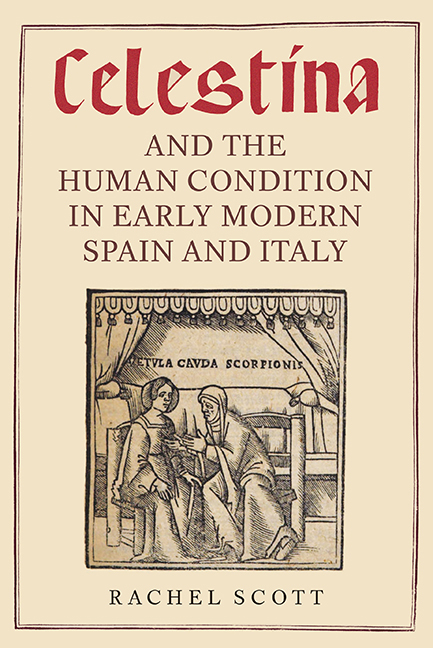Book contents
- Frontmatter
- Dedication
- Contents
- List of Illustrations
- Acknowledgements
- Note on Editions, Transcriptions, and Translations
- Introduction
- 1 Debating the Human Condition: Celestina's Interlocutors
- 2 Self-knowledge and Solitude: Diálogo de la dignidad del hombre
- 3 Fashioning Self and Society: Il Cortegiano
- 4 The Myth of Freedom: La vita delle puttane
- 5 Corrupting Women, Corrupting Words: Coloquio de las damas
- Afterword
- Bibliography
- Index
2 - Self-knowledge and Solitude: Diálogo de la dignidad del hombre
Published online by Cambridge University Press: 16 May 2018
- Frontmatter
- Dedication
- Contents
- List of Illustrations
- Acknowledgements
- Note on Editions, Transcriptions, and Translations
- Introduction
- 1 Debating the Human Condition: Celestina's Interlocutors
- 2 Self-knowledge and Solitude: Diálogo de la dignidad del hombre
- 3 Fashioning Self and Society: Il Cortegiano
- 4 The Myth of Freedom: La vita delle puttane
- 5 Corrupting Women, Corrupting Words: Coloquio de las damas
- Afterword
- Bibliography
- Index
Summary
‘Nosce te ipsum’
Medieval and early modern concepts of what it meant to be human invoke the need for self-awareness, to ‘humillarse y reconocerse’, according to the definition of ‘humano’ given by Sebastián de Covarrubias Horozco in his Tesoro de la lengua castellana o española (2006: 1078). Summed up by the popular Latin tag ‘Nosce te ipsum’, or ‘know thyself’, the concept of self-knowledge has its origins in Greek philosophy and involves the idea that the search for truth had to originate from an understanding of oneself. In medieval Christian and ascetic traditions the point of this quest for self-knowledge was unity with God. For example, Hugh of St. Victor writes in the Didascalicon de studio legendi that ‘ascendere ad deum hoc est intrare ad semetipsum et non solum ad se intrare sed ineffabili quodam modo in intimis etiam se ipsum transire’; and the pseudo-Bernardian Meditationes Piissimae de cognitione conditionis humanae advises ‘Stude cognoscere te; quam multo melior et laudabilior es si te cognoscis quam si te neglecto cosnesceres cursum siderum’. Self-knowledge also appears in the prologue to Hernán Núñez de Toledo's 1499 commentary on Juan de Mena's Laberinto de fortuna. Here it is glossed by Núñez, who cites Lactantius Firmianus's statement that ‘“Pravitatis causa est ignoratio sui” (la causa de todo peccado y error es la ignorancia de sý mismo)’ (2016: 177), thereby positioning self-knowledge as a sort of coping mechanism or strategy for overcoming spiritual and earthly difficulties (fortune, age, illness, slander or subjugation to any other force).
In the Renaissance this idea continued to hold sway with Neo-Platonists such as Marsilio Ficino, who believed that knowledge, like love, unified the subject and the world and, to quote Ernst Cassirer, strove ‘to overcome the separation in the elements of being and return to the point of their original unity’ (1963: 134), i.e. to bring mankind back to God – a sentiment that underlines the integrity, harmony, and sense of proportion thought to exist between humanity and the created order. Bernard Murchland describes the image of self-hood in works such as Ficino's Theologia Platonica as ‘a contemplative ideal with clear moral implications dominated by the spiritual experience of an inner ascent that leads the soul through several degrees of knowledge and of love to the immediate vision of God’ (1966: xvii-xviii).
- Type
- Chapter
- Information
- Publisher: Boydell & BrewerPrint publication year: 2017



